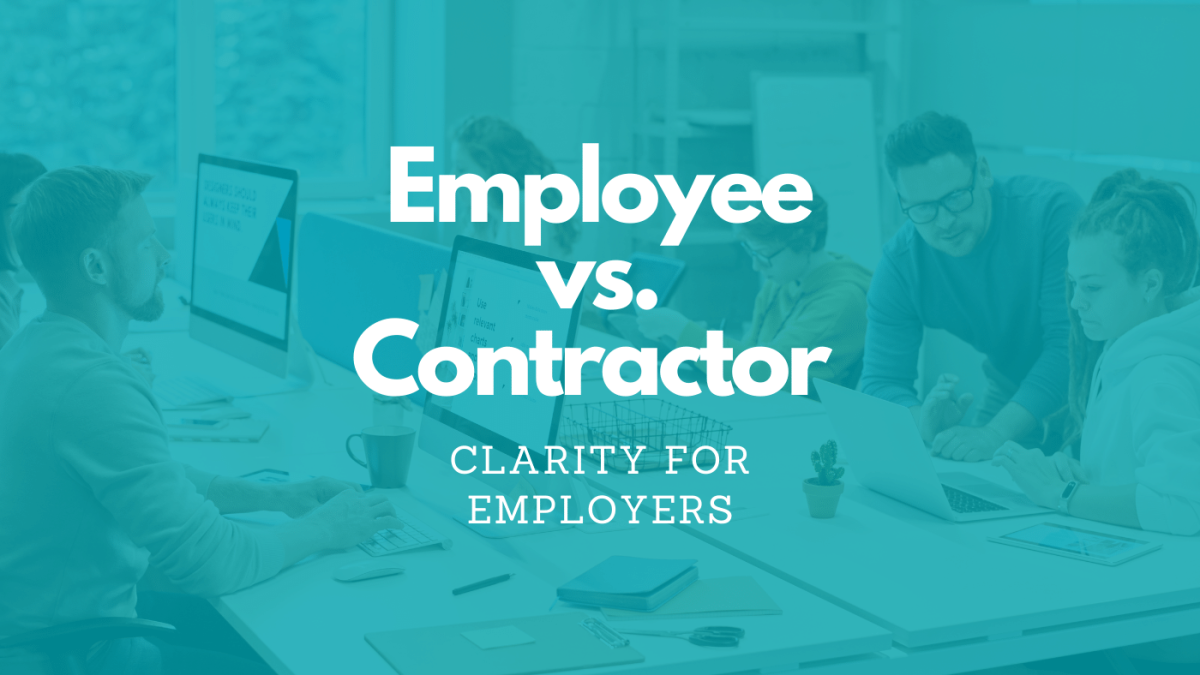Question of the month: contractor vs employee
Whether a worker qualifies as a contractor or an employee is a common source of confusion among small business owners. There are some common misconceptions around this, and it’s important for our clients to be aware of their responsibilities for tax, super and workers compensation purposes.
Many of our clients have busy periods in a year (e.g. during a harvest) at which time they require extra hands on a temporary basis. Those with seasonal staffing requirements can sometimes assume that a short-term worker is best treated as a contractor, however, this is not always the case.
It’s very important for all employers to know these differences to ensure they meet their obligations under the National Employment Standards (e.g. in relation to leave entitlements) and in making compulsory super contributions for all employees.
In addition, some contractors (including rural workers) can be ‘deemed workers’ for whom you must make superannuation payments and have workers compensation coverage in place.
The ATO has provided some clear guidance on the differences between contractors and employees for tax and super purposes. There are some easy questions to ask yourself when taking on a new hire, including but not limited to:
- Can the worker subcontract the work to someone else? If you feel the worker should be the one to carry out the work personally, they are already closer to being deemed an employee. Contractors have much more freedom to: determine who does the work, control how the work is done, and remain independent of your business (including by working with multiple businesses simultaneously and accepting or refusing any additional work).
- Do they provide a quote or do you set the terms? A contractor generally sets the price of their work and basis of payment (e.g. price per hour or per item), whereas an employee will receive an hourly rate for their efforts (or price per item, and/or commission) that you determine for them.
- Do you or they supply the tools for the task at hand? A contractor will generally bring with them all the equipment, tools and other assets needed to complete the work (without being reimbursed for it), whereas an employee will either be supplied with everything they need and/or be reimbursed for any of their own tools involved and costs incurred.
- Do you expect to hold the worker liable for defective work? If you expect the worker to rectify any mistakes at their own expense, you’re thinking of a contractor. In an employee’s case, you take full legal responsibility for their work (and so will want to provide all training, systems, policies and procedures to ensure performance).
The ATO has provided a handy decision tool to help you easily test each new worker’s situation and see whether they are likely to be considered an employee or a contractor for tax and super. You answer a few short questions along the lines of those above and it provides you with an indicative result. It’s important to note that you can’t rely on this tool alone to determine the legal status of your workers, but it is helpful nonetheless.
It’s also important to note that certain actions or factors can’t override the true nature of the relationship. For example, the fact that an agreement is signed by both parties identifying the worker as a contractor (and/or the fact that they have an ABN, issue a quote, or provide an invoice), cannot overrule the more decisive legal factors such as whether they have control over the work, use provided tools, or cannot delegate to anyone else.
What about ‘deemed workers’?
It may surprise you to know that a contractor for tax and super purposes may still be considered a deemed worker from a workers compensation perspective, meaning you need to cover them like any other employee.
Deemed workers can include but are not limited to:
- Outworkers
- Salespersons, canvassers, and collectors
- Contractors under labour hire service arrangements
- Rural workers
Other than in the case of deemed workers, you are not required to provide workers compensation cover for actual contractors.
Where an individual contractor is engaged principally for their labour, you are also required to make superannuation payments on their behalf. This will not be the case where they are engaged via a company.
We hope this has provided some clarity around a very common question, however, individual cases can always be more complicated and murky. If you have any questions about the status of a current or potential worker in your business, please don’t hesitate to contact us.
IMPORTANT NOTICE
This blog post contains general information only and has been prepared by Allworths without reference to your objectives, financial situation or needs. Allworths cannot guarantee the accuracy, completeness or timeliness of the information contained here. By making this information available to you, we are not providing professional advice or recommendations. Before acting on any of the information contained here, you should seek professional advice.




